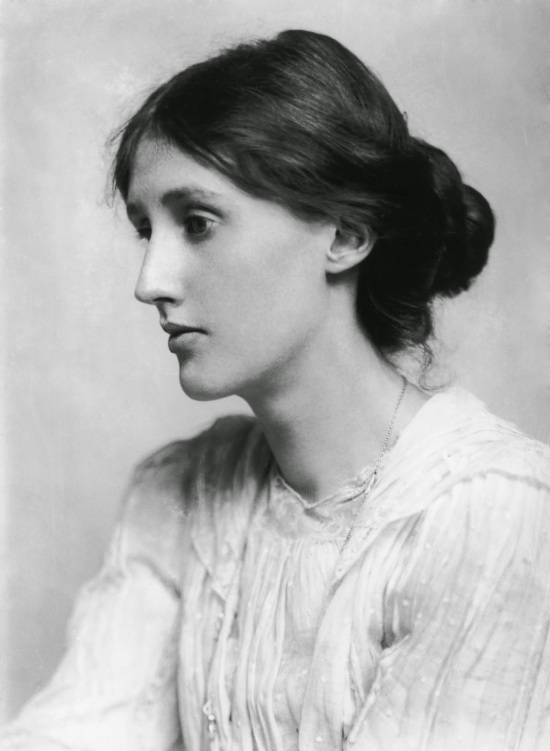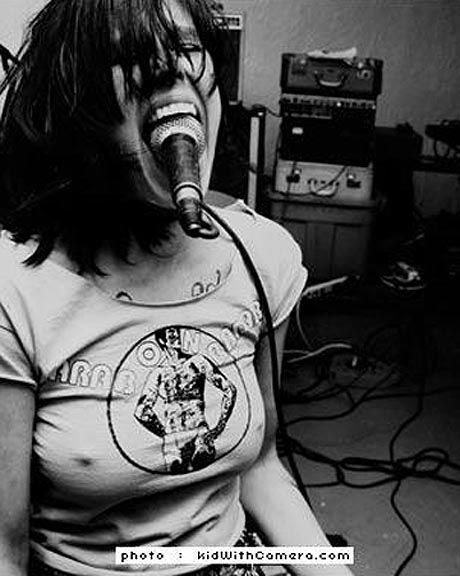To celebrate International Women’s Day 2016, here are 10 incredible women from the history who broke the rules and spoke their voices.
George Sand

“You can bind my body, tie my hands, govern my actions: you are the strongest, and society adds to your power; but with my will, sir, you can do nothing.” – George Sand (1804-1876)
George Sand (born Amantine-Lucile-Aurore Dupin) was a French novelist, a leader in the Romantic movement in literature, a feminist libertine, and a socialist champion of the working class. Sand lived a true bohemian lifestyle, she wore men’s clothing, smoked cigars, and used her masculine pen name in public.
Emmeline Pankhurst

“We are here, not because we are law-breakers; we are here in our efforts to become law-makers.” – – Emmeline Pankhurst (1858-1928)
Emmeline Pankhurst was a passionate British political activist and leader of the British suffragette movement who helped women win the right to vote.
Marie Curie

“Nothing in life is to be feared. It is only to be understood.” – Marie Curie (1867-1934)
Marie Curie was a Polish -French physicist and chemist who conducted pioneering research on radioactivity. She was the first woman to have received two Nobel Prizes
Amelia Earhart

“Everyone has ocean’s to fly, if they have the heart to do it. Is it reckless? Maybe. But what do dreams know of boundaries?” – Amelia Earhart (1897 – 1937)
Amelia Earhart was an American aviation pioneer and author. Earhart was the first female aviator to fly solo across the Atlantic Ocean and set many other records throughout her career.
Virginia Woolf

“As a woman I have no country. As a woman I want no country. As a woman, my country is the whole world.” ― Virginia Woolf (1912 – 1941)
Virginia Woolf was an English writer and one of the foremost modernists of the twentieth century. Woolf was a significant figure in London literary society and a central figure in the influential Bloomsbury Group of intellectuals.
Woolf’s best-known nonfiction works, A Room of One’s Own and Three Guineas, examine the difficulties that female writers and intellectuals faced because men held disproportionate legal and economic power and the future of women in education and society, as the societal effects of industrialization and birth control had not yet fully been realized.
Ayn Rand

“The question isn’t who is going to let me; it’s who is going to stop me.”
― Ayn Rand (1905 – 1982)
Ayn Rand was a Russian-born American novelist, philosopher. Rand developed a unique philosophical system called Objectivsim.
Rand’s “Objectivism”, describing its essence as “the concept of man as a heroic being, with his own happiness as the moral purpose of his life, with productive achievement as his noblest activity, and reason as his only absolute.”
Rosa Parks

“I knew someone had to take the first step and I made up my mind not to move.” – Rosa Parks (1913-2005)
Rosa Parks was an African American civil rights activist, whom the United States Congress called “the first lady of civil rights” and “the mother of the freedom movement”.
In this 1955 picture, Rosa Parks is seen in her Montgomery county mugshot after being arrested for refusing to give up her seat on a public bus to a white passenger. The actions of Rosa Parks and the subsequent Montgomery Bus Boycott became important symbols of the Civil Rights Movement during the mid-20th century.
Aung San Suu Kyi

“The only real prison is fear, and the only real freedom is freedom from fear”
― Aung San Suu Kyi
Aung San Suu Khi is the leader of Burma’s democracy movement and winner of the 1991 Nobel Peace Prize. 1990 the Burmese military put her under house arrest after winning a legal democratic election. She endured her punishment and was released five years later, never wavering in her beliefs and hope for the future of Burma and its people.
Yayoi Kusama

“Polka dots can’t stay alone. When we obliterate nature and our bodies with polka dots we become part of the unity of our environments. ” – Yayoi Kusama
Yayoi Kusama was a Japanses artist and write. Throughout her career she has worked in a wide variety of media, including painting, collage, scat sculpture, performance art, and environmental installations. She was considered one of the leaders in the avant-garde movement. She is also part of the pop art, minimalist and feminist art movements.
Kathleen Hanna

“While sexism hurts women most intimately, it also damages men severely.”
Kathleen Hanna is an American musician, feminist activist, and punk zine writer. In the early-to mid-1990s she was the lead singer of feminist punk band Bikini Kill, before fronting Le Tigre in the late 1990s












